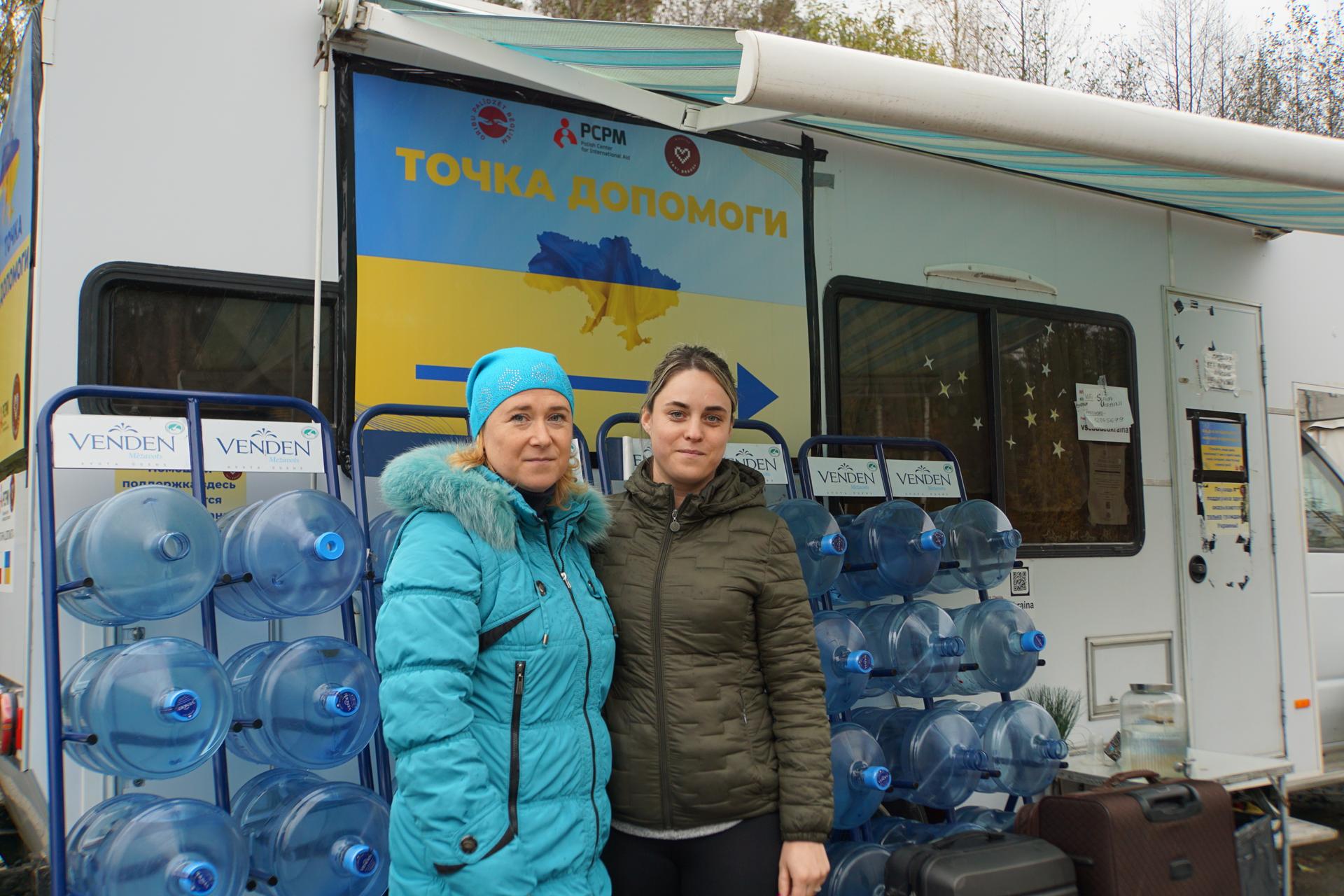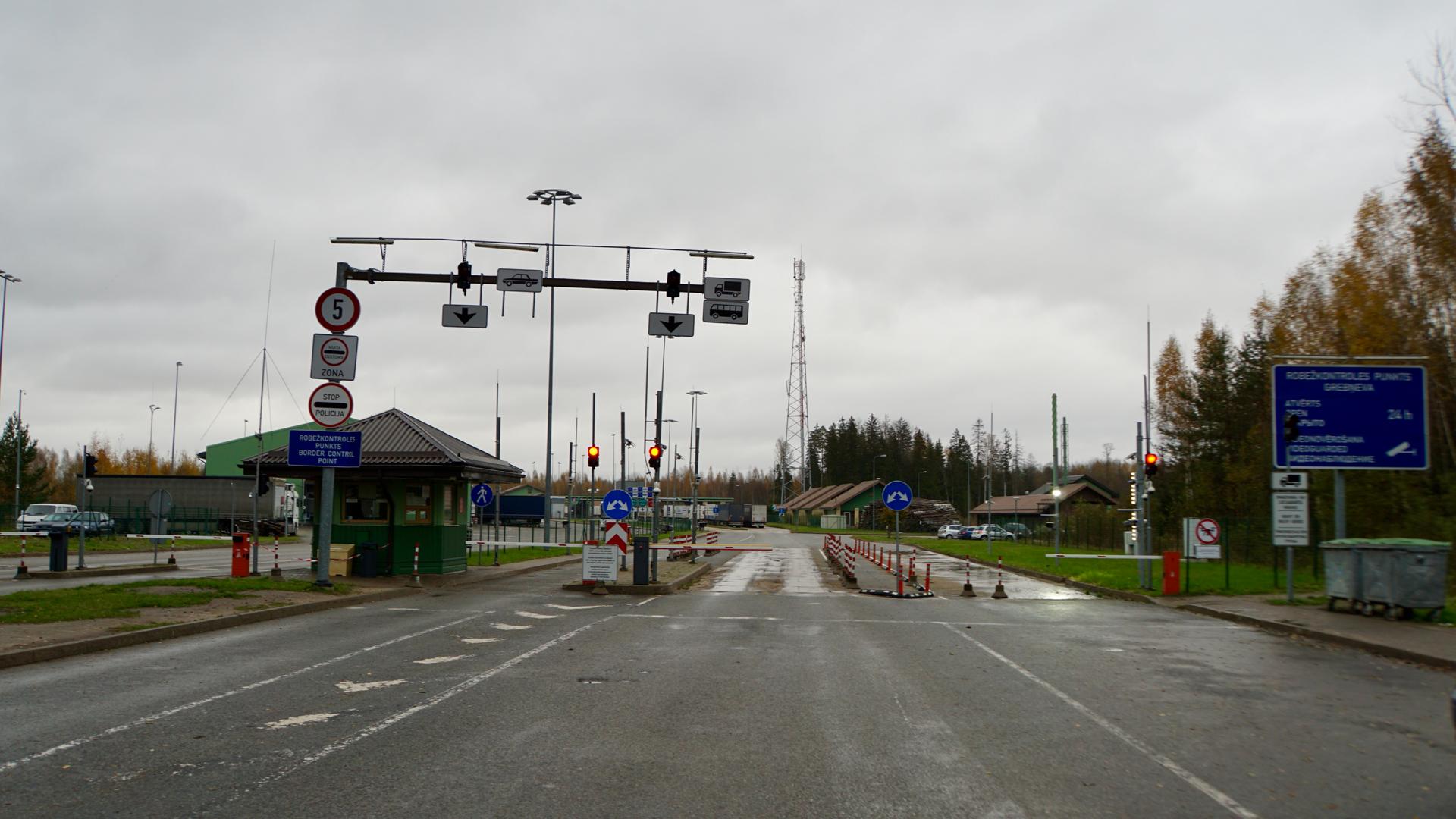For Ukrainians caught under Russian occupation, there aren’t many good options.
Some stay in Ukraine, living in uncertain and often unsafe conditions, while others seek safer conditions in Russia.
Another option is fleeing via a third country.
Just a stone’s throw away from Russia is the Grebņeva border checkpoint in eastern Latvia.
Ukrainians line up on the other side of the border, hoping to enter Latvia. In some cases, they wait for a few days without shelter or food.
Once Ukrainians cross the border from Russia into Latvia, they’re greeted by a couple of volunteers at a “tochka dapomogy,” which means “help point” in Ukrainian. There’s a sign outside of their tent with a Ukrainian flag.
Volunteers provide hot water, shelter, a warm place to rest and some clean clothing for those who need to change.
Alina Kirilenko, who is with the Latvian NGO Tavi Draugi, which means “Your Friends,” started volunteering at the border in March.
She said she understands what many Ukrainians who cross this border are going through — because she was one of them.
Before coming to Latvia in April of last year, she was living under Russian occupation in eastern Ukraine.
“We didn’t have any other way out,” Kirilenko said. “Some tried driving towards Kharkiv city, in Ukraine, but the Russians would shoot at those cars.”
Kirilenko said she and her children decided to go east — into Russia.
They placed signs on her car that said “Kids onboard” and crafted white flags out of bed sheets to display.
Kirilenko said they were stopped at more than a dozen checkpoints.
Eventually, her family was able to enter Russia — but they didn’t stay for long.
A few weeks later, they crossed yet another border — into Latvia.
Now, she helps other Ukrainians do the same.
“When they cross the border,” Kirilenko said, “they say that the air is different here.”

Kirilenko is one of many volunteers who work in 48-hour shifts, welcoming new arrivals on the other side of the checkpoint.
“When I start speaking Ukrainian to them, they immediately understand that this is a good place.” Kirilenko said. “They understand that Europe is a free place and a place that welcomes people.”
About a 40-minute drive from the border is a town called Rēzekne.
Some Ukrainians who cross the border stop there as a transit point before continuing their journey back to Ukraine or elsewhere in Europe.
Denys Maliarov lives in Rēzekne with his mom and sister, and before coming there, they also lived under Russian occupation.
Izium, their hometown in Ukraine, was a war zone.
“My father was a firefighter,” Maliarov told The World. “One day, during one of his shifts, he was hit by incoming fire. He was injured … and they weren’t able to get him to the hospital in time.”
His father was killed in May of last year.
“It was hardest for my mom,” said Maliarov. “That’s one of the reasons we decided to come to Latvia.”
Maliarov said his mom’s best friend lives in Rēzekne and has helped their family settle there.
“We have a new life here,” he said, “Everything is good.”
He’s not sure if he wants to return to Ukraine, but he also said it’s hard to plan ahead these days.
“I learned this from all our travels and, of course, from the war,” Maliarov said. “They told us it would end in three days, and every three days … they would say [the same thing].”
